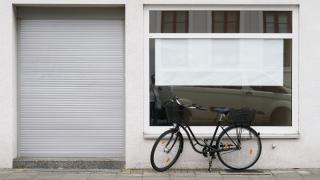Whether you're a property owner, a visitor, or someone who has been injured on another person's premises, this comprehensive guide will provide you with the knowledge you need.
1. What Is Premises Liability?
Premises liability refers to the legal responsibility that property owners have for accidents and injuries that occur on their premises.
It’s based on the principle that property owners, whether they own a private residence, commercial property, or public space, have a duty to ensure their property is safe for visitors. When they fail in this duty, and someone is injured as a result, they may be held legally liable for those injuries. Property owners include homeowners, business owners, landlords, and government entities responsible for maintaining public spaces.
If you’re a victim of an accident on someone else's property due to their negligence, consulting a premises liability lawyer in Longview, Texas, is essential to understand your rights.
2. Key Factors in Premises Liability Cases
When working with a premises liability lawyer, your case will combine several key factors:
A. Property Owner Negligence
The cornerstone of any premises liability case is proving that the property owner was negligent in maintaining their property. Negligence can manifest in various ways, such as failure to repair hazards, inadequate security, or improper maintenance of walkways and stairs.
B. Visitor Status
The legal status of the visitor is essential in determining liability. Visitors are typically categorized as:
- Invitees: Those invited onto the property for business purposes, such as customers in a store.
- Licensees: Individuals permitted to enter the property for social reasons, like friends or family.
- Trespassers: Individuals who enter the property without permission.
The duty of care owed by the property owner varies depending on the visitor's status.
3. Types of Accidents Covered by Premises Liability
When speaking with a premises liability attorney, they will tell you that cases can arise from various accidents, including:
A. Slip and Fall Accidents
These occur due to slippery or uneven surfaces, inadequate lighting, or cluttered walkways.
B. Dog Bites
Property owners are often responsible for injuries caused by their dogs if they knew or should have known about their dog's aggressive behavior.
C. Swimming Pool Accidents
Owners of pools must take precautions to prevent drownings and other accidents, such as maintaining proper fencing and safety measures.
D. Negligent Security
When property owners fail to provide adequate security, resulting in harm to visitors due to criminal activity, they may be held liable.
4. Proving Negligence in Premises Liability Claims
To succeed in a premises liability claim, you need to establish the following elements with your premises liability attorney:
A. Duty of Care
Demonstrate that the property owner owed you a duty of care, which is typically determined by your visitor status.
B. Breach of Duty
Show that the property owner breached their duty of care by failing to maintain a safe environment.
C. Causation
Establish a direct link between the property owner's negligence and your injuries.
D. Damages
Prove that you suffered actual damages, such as medical bills, lost wages, or pain and suffering, as a result of the accident.
5. Your Rights and Compensation in Premises Liability Cases
If you've been injured due to someone else's negligence on their property, you have the right to seek compensation for your losses. This compensation may cover medical expenses, lost income, rehabilitation costs, and pain and suffering.
Consulting a premises liability attorney in Longview, Texas, is crucial to navigate the legal complexities of your case. At Sloan Firm, we’ll help you gather evidence, negotiate with insurance companies, and, if necessary, represent you in court to ensure you receive fair compensation.
Call us today for a FREE consultation.
